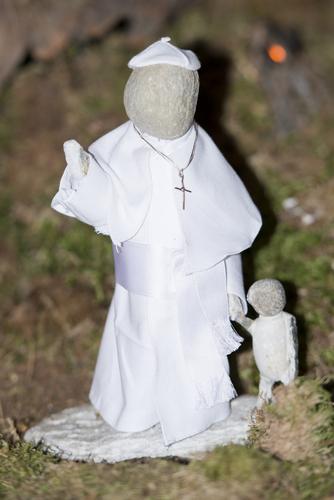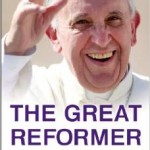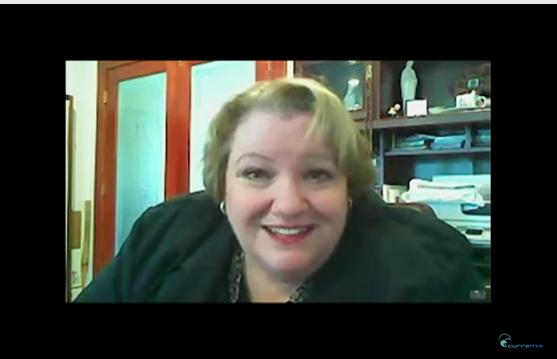
Ever since October’s Synod on the Family issued its final relatio — which managed to pay one line of lip-service to single parents, Katrina Fernandez has been feeling all-too-keenly aware of how detrimental it can be for a church to label-and-divide the flock for tailored worship and social events. When the news broke that Pope Francis would be meeting with families living with autism, she sounded a well-pitched note of concern:
I’m glad the families in the video above are finally able to have church back into their lives. No family or child should ever feel unwelcome in a Catholic Church… the noisy, diverse, universal Catholic Church.
But (you knew there was going to be a “but”) do we really need yet another separate mass catering to a specific group of people? How are people not accustomed to dealing with autistic children’s behavior ever going to be accepting of them if we separate them from the general congregation?. . .How can we be a church for all if we insist on being divided?
She’s not wrong, and the wisdom and effectiveness of separate liturgies, tailored for specific sensibilities should perhaps be questioned. It does have the effect of insulating groups within a parish community. If things grow a bit stale amid all of that “sameness”, well, at least people aren’t being moved out of their comfort zones, are they? But on the other hand, do we really think we must tailor a liturgy to people, or they just won’t get it?
We are so used to every concern about “needs” being answered with a “special” — and somewhat segregated — Mass that we don’t fully consider where integration is not just possible but preferable.
Over at The Font, we are featuring a piece by Shana Buck, a homeschooling mom who has three children living within the autism spectrum, and attends a parish where small accommodations have yielded big blessings:
So that Nicholas would not have to deal with a multitude of children receiving First Communion — and the choir music which might have lead to a full-scale screaming melt-down — he was the only child to receive it at the 7:30 AM Mass. Those parishioners who worship with him each week went out of their way to congratulate him, and some even gave him small gifts. As regular attendees of an earlier mass, they don’t usually get to share in a First Communion, so the allowance made for Nicholas’ sake was actually a kind of “win-win” for many there.
Because of the kindness of so many parishioners, and the way our priest has encouraged the parish to respond to his needs, Nicholas enjoys going to Mass. He sits as still as he can and listens intently to the readings, quite often remembering particular passages that he wants to discuss at home. He always makes sure he is in bed early on Saturday night so that he can wake up in time to be ready to go to Holy Mass at 7:30 on Sunday.
These small accommodations are not outrageous; they are probably do-able in most parishes, and truly help people with different needs feel like they are part of a community, and not “strange” or strangers.
Read the whole thing. This parish has found ways to nurture and involve autistic members of its community. The small changes they have made are not arduous or disruptive, and it seems their efforts have ended up enriching the whole parish.
Finally, over in our Muslim channel, Dilshad Ali, a beautiful writer, shares her elation at hearing any voice of religious authority speaking up for autistic people:
And while I know that many individuals with autism and autism advocates take a lot of issue with the verbiage of being referred to as a “problem” or the being the source of difficulty (I too do not consider my son a problem, but I can’t deny that things can be terribly difficult for him), I hope we can appreciate the intention of what Pope Francis and the Vatican is trying to do.
It matters. It just does. To be acknowledged, to be heard and seen, to have our hopes, dreams, fears, troubles and joys talked about. It all matters.
It matters, because people matter, even when they seem unable to process the world in quite the same way the rest of us (supposedly) do. And people of all faiths should be able to help all of their co-religionists grow closer to God, however that connection may be made.
Related:
Elizabeth Duffy got the ball rolling on this topic, last week!















